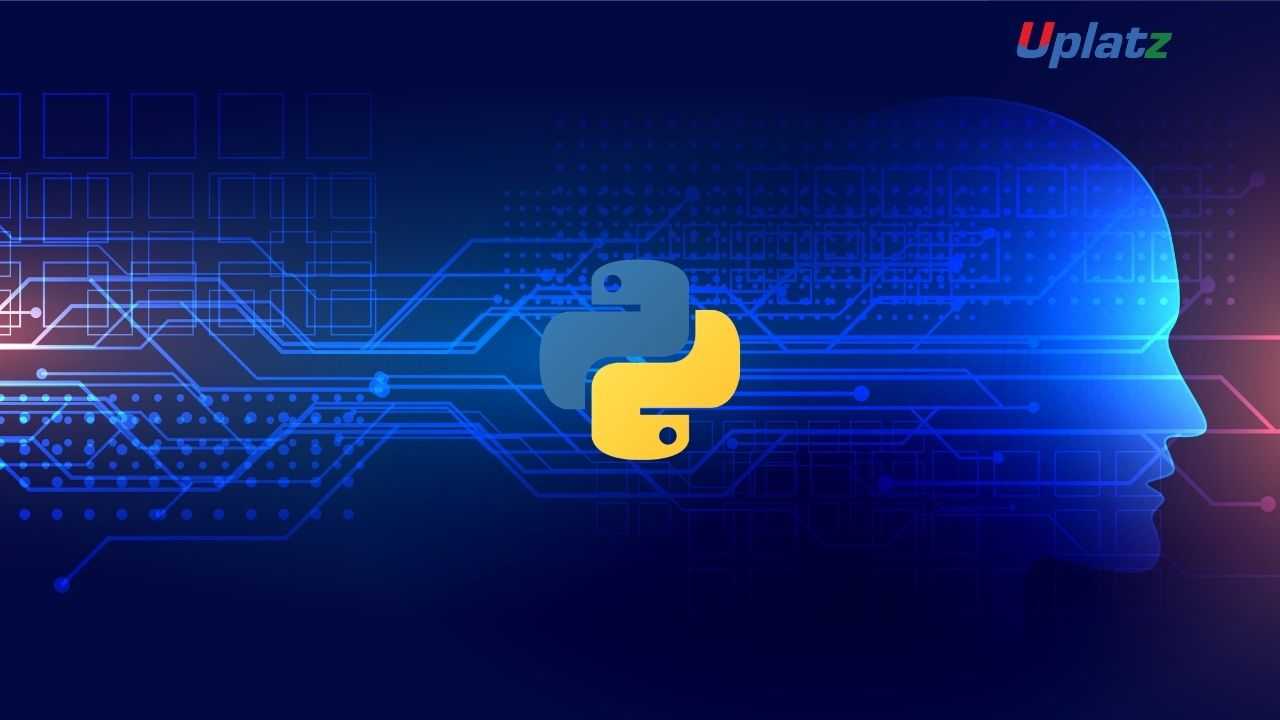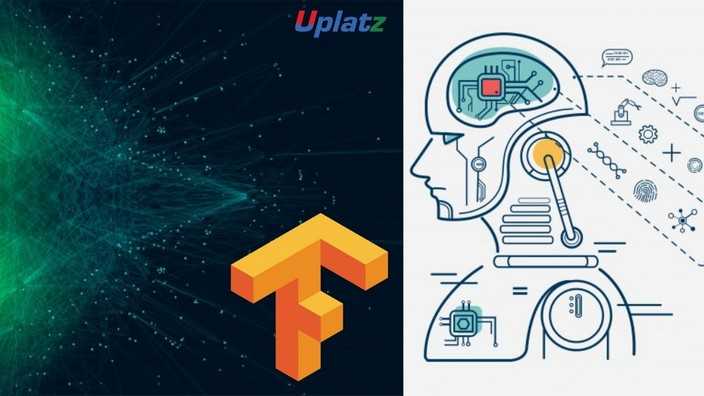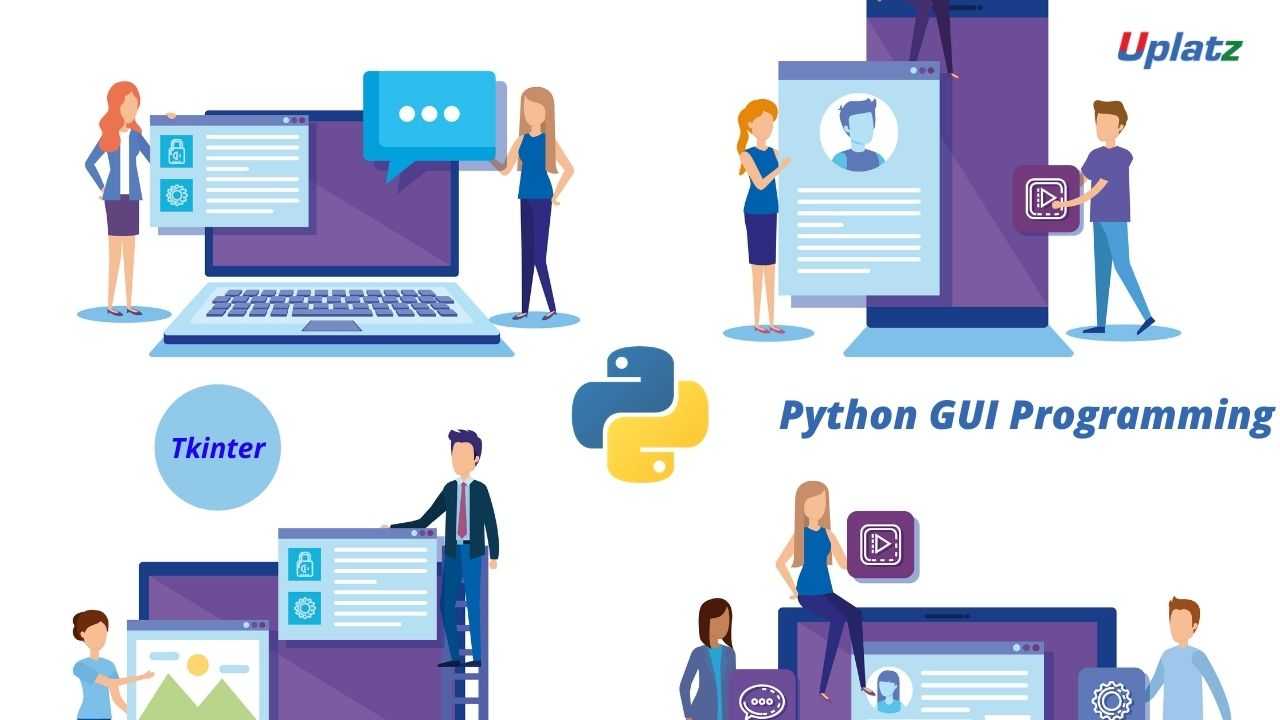Deep Learning Foundation
You will learn about is a groundbreaking tool for processing large quantities of data, & performance of the machine improves as it analyzes more data.Preview Deep Learning Foundation course
View Course Curriculum Price Match Guarantee Full Lifetime Access Access on any Device Technical Support Secure Checkout Course Completion Certificate 100% Started a new career
BUY THIS COURSE (
100% Started a new career
BUY THIS COURSE (GBP 12 GBP 29 )-
 97% Got a pay increase and promotion
97% Got a pay increase and promotion
Students also bought -
-

- Machine Learning with Python
- 25 Hours
- GBP 12
- 3518 Learners
-

- Deep Learning with TensorFlow
- 50 Hours
- GBP 12
- 333 Learners
-

- GUI Programming in Python using Tkinter
- 30 Hours
- GBP 12
- 923 Learners

Deep Learning also known as Deep Structured Learning is a subset of machine learning and refers to neural networks that have the ability to learn the input data increasingly abstract representations.
Artificial Intelligence and Deep Learning is revolutionizing technology, business, services and industry in a manner not seen before. This has been possible due to rapid progress and strides made in the computing and graphic processor technologies and widespread use of the internet and mobile devices.
This learning technique is a groundbreaking tool for processing large quantities of data, since the performance of the machine improves as it analyzes more data.
The various different methods can be used to create strong deep learning models.
Learning rate decay – The learning rate is a hyperparameter that controls how much change the model experiences in response to the estimated error every time the model weights are altered. The easiest and most common adaptations of learning rate during training include techniques to reduce the learning rate over time.
Training from scratch – This technique is especially useful for new applications, as well as applications with a large number of output categories.
Key skills that require deep learning foundation
Deep Learning with TensorFlow
Data science has always been focused on analyzing massive amount of data. One of the most popular software platforms used for deep learning is TensorFlow, the open –source software library developed by Google to conduct machine learning and deep neural networks research.
Natural Language Processing
Natural language processing (NLP) in the field of computer science and AI concerned with understanding and processing the interactions between computers and natural human language. NLP technologies to efficiently process natural language data on a vast scale, using the analysis to perform task such as improving speech recognition which has dramatic implications across a wide range of industries.
Robotic Process Automation
Robotic process automation (RPA) is the application of technology that allows technicians to configure computer software or robot to capture and interpret existing applications for processing a transaction and manipulating data.
Uplatz provides a complete end-to-end course covering all topics of Deep Learning Foundation in detail.
Course/Topic - Deep Learning Foundation - all lectures
-
In this session we will learn about the introduction to Deep Learning. This video talks about Deep Learning as a series introduction and what is a neural network. Furthermore, we will talk about the 3 reasons to go deep and your choice of Deep net.
-
In this video tutorial we will discuss about the neural networks and the 3 reasons to go Deep. Further we will also learn about the use of GPU in artificial intelligence and your choice of deep net.
-
In this session we will learn about the deep learning models basics. After this video you will be able to understand the concept of restricted Boltzmann machines and deep belief network. Furthermore, you will learn about the convolution neural network and recurrent neural network.
-
In this video course further topics of Deep learning models. After this video you will be able to understand the convolution neural network and its characteristics in detail.
-
In this video course further topics of Deep learning models. After this video you will be able to understand the recurrent neural network and its characteristics.
-
In this session the tutor talks about the basic Additional Deep Learning Models. In this video you will learn about Auto encoders, Recursive neural tensor network and generative adversarial networks
-
This session is in continuation to the previous session. In this video we will learn about the Recursive Neural Tensor Network in detail and hierarchical structure of data.
-
In this Additional Deep Learning Models tutorial, we will proceed with the Generative Adversarial Networks (GAN) and its uses.
-
In this video the tutor explains the Platforms and Libraries of Deep Learning. We will start with what is a deep net platform, H2O.ai and Dato Graph Lab. Further we will see what is a Deep Learning Library and Theano and Caffe. We will also cover a bit of Keras and TensorFlow.
-
This tutorial will cover the further part of DatoGraph Lab and its history. Further we wil see the benefits and uses of DatoGraph Lab.
-
This tutorial will cover the further part of DatoGraph Lab and its history.
-
In this video we will cover the further topics of Deep Learning platform and Libraries such as what is a Deep Learning Library? when and how to use Theano and Caffe as Deep Learning Library.
-
In previous video we have leant about Theano and Caffe Deep Learning Library. In this video we will learn about the TensorFlow (free and open source library) as a Deep Learning Library and building Deep Learning Models.
-
In this video we will learn about the last type of Library i.e. Keras. Keras is an open source neural network library and runs on top of Theano or TensorFlow. We will further see the advantages of Keras in Deep Learning.
• Understand the context of neural networks and deep learning
• Know how to use a neural network
• Understand the data needs of deep learning
• Have a working knowledge of neural networks and deep learning
• Explore the parameters for neural networks
Deep Learning Foundation - Syllabus
Module 1 - Introduction to Deep Learning
· Deep Learning: The Series Introduction
· What is a Neural Network
· Three reasons to go Deep
· Your choice of Deep Net
· Deep Learning Market
Module 2 - Deep Learning Models
· Restricted Boltzmann Machines
· Deep Belief Network
· Convolutional Network
· Recurrent Network
Module 3 - Additional Deep Learning Models
· Autoencoders
· Recursive Neural Tensor Network
· Generative Adversarial Networks
Module 4 - Deep Learning Platforms & Libraries
· What is a Deep Net Platform
· H2O.ai
· Dato GraphLab
· What is a Deep Learning Library
· Theano
· Caffe
· TensorFlow
· Keras
Uplatz Certification Programme in Deep Learning Foundation enables professionals to build expertise in Deep Learning, starting from essential theoretical foundations to learning how to apply them in the real world effectively.
The programme creates a practical understanding of how Machine Learning algorithms can be developed and optimized for hardware. Such systems can be used in edge computing where power and performance are the major constraints. The interactive sessions will cover fundamentals of deep learning and its applications including speech, text, image, and video processing.
Deep Learning is a subset of Machine Learning that is normally used for more complex applications like Image Recognition, Natural Language Processing, etc. Hence, it is not necessary to know for the routine and basic Data Science applications that involve structured or tabular data. But now, Image Recognition, Natural Language Processing, etc. are becoming more and more popular even in normal Machine Learning applications which means you should know at least the basics of Deep Learning.
If you have a background in analytics and know programming, you can apply for the senior positions. With experience and certification, you can progress in your career in Machine Learning to move into lead and managerial positions or into research.
Mid-level Deep Learning Engineers having more than eight years of work experience can earn an average annual salary of Rs. 7 – 12 LPA, whereas senior-level professionals having over 15 years of field experience can command salaries ranging between Rs. 25 – 48 LPA and more.
Job titles:
• ML engineer
• Software engineer/developer
• Data Scientist
• AI engineer
1. WHAT IS DEEP LEARNING?
Deep Learning is an advanced form of Machine Learning with an algorithm inspired by the brain’s structure and function, called an Artificial Neural Network. Alexey Grigorevich Ivakhnenko published the first general in the mid-1960s while working on a Deep Learning network. Deep Learning includes the acquisition of large volumes of structured or unstructured data and complex algorithms to train Neural Networks.
2. WHAT IS A NEURAL NETWORK?
Neural Networks imitate the way humans learn, inspired by how neurons in our brains work, but much more straightforward. Each sheet comprises neurons called ‘nodes,’ conducting a variety of operations. Neural Networks get used for Deep Learning algorithms such as CNN, RNN, GAN, etc.
The most typical Neural Networks consist of three layers of the network –
a) An input layer
b) A hidden layer (this is the most vital layer where feature extraction takes place)
c) An output layer
3. WHAT ARE THE PRINCIPAL DIFFERENCES BETWEEN AI, MACHINE LEARNING, AND DEEP LEARNING?
AI refers to ‘Artificial Intelligence.’ It’s a technique that allows computers to imitate human interactions and intelligence.
Machine Learning is a subset of AI that uses statistical techniques to allow machines to enhance their performance.
Deep Learning is part of Machine Learning, which uses Neural Networks to replicate human-like decision-making.
4. DISTINGUISH BETWEEN SUPERVISED AND UNSUPERVISED DEEP LEARNING PROCEDURES.
Supervised Learning is a method in which both input and output data are given. The input and output data are named as a learning basis for future data processing.
The unsupervised procedure does not require specific labeling details, and operations can perform without the same. Cluster Analysis is a traditional Unsupervised Learning process. It gets used for exploratory Data Analysis to identify hidden patterns or Data Clustering.
5. DO YOU THINK THAT A DEEP NETWORK IS BETTER THAN A SHALLOW ONE?
Both shallow and deep networks are good enough to approximate any feature. But deeper networks can be much more effective in computing a number of parameters at the same degree of accuracy. Deeper networks can develop deep representations. The network learns a new, more abstract representation of the input at each layer.
6. WHAT DO YOU UNDERSTAND BY ‘OVERFITTING’?
Overfitting is the most prevalent problem in Deep Learning. It typically happens when a Deep Learning algorithm perceives the noise of any specific data set.
7. WHAT IS BACKPROPAGATION?
Backpropagation is a training algorithm that gets used for multi-layered Neural Networks. Backpropagation can be described as the following:
· It can forward the distribution of training data over the network to generate output.
· It uses the target value and output value to calculate the derivative error in the output activations.
· It can be repropagated to measure the error derivative for output activations in the previous layer and to proceed for all hidden layers.
· It uses the previously measured output derivatives and all hidden layers to calculate the weight-related error derivative.
8. WHAT IS THE FUNCTION OF THE FOURIER TRANSFORM IN DEEP LEARNING?
Fourier transform package is highly effective for the analysis, maintenance, and management of broad databases. The program gets developed with a high-quality feature known as a special portrayal. It can be used effectively to produce real-time array data, which is extremely useful for processing all categories of signals.
9. DESCRIBE THE THEORY OF THE AUTONOMOUS FORM OF DEEP LEARNING.
An autonomous pattern represents an individual or non-specific mathematical foundation exempt from any specific categorizer or formula.
10. WHAT IS THE APPLICATION OF DEEP LEARNING IN TODAY’S AGE, AND HOW DOES IT HELP DATA SCIENTISTS?
Deep Learning has brought significant improvements and transformations to the world of Machine Learning and Data Science. The definition of a Complex Neural Network (CNN) is the main subject of concern for data scientists. It is commonly used because of its advantages in conducting next-level Machine Learning operations. The benefits of Deep Learning also include the process of clarifying and simplifying algorithm-based issues due to its extraordinarily scalable and adaptable nature. It is one of the rare techniques that allow the movement of data in separate pathways.









